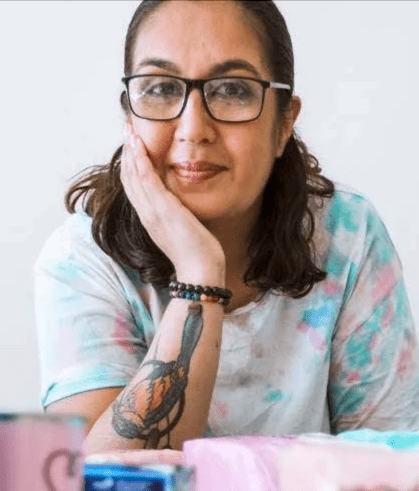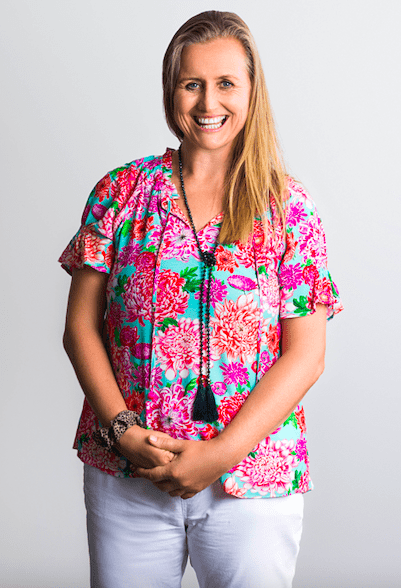Can medicinal cannabis be the answer to stubborn, chronic pain? An endometriosis suffer tells her story – and we get to the bottom of whether medical weed is a good idea.
Endometriosis stories don’t get much worse than Jess Sandoval’s.
As well as dealing with the absolute hell that is endo for more than 20 years, Jess, the founder of Endo Warriors Aotearoa, also experienced depression, PCOS, IBS and PTSD, all related to her condition and the accompanying severe pain she found herself in every day.
But these days, things are looking a little brighter thanks to her new way of managing her pain – and Jess wants to let others who might be similarly suffering that there is hope.
“Things are finally starting to feel more manageable with my latest pain management. It has been a long, tough road, but I’m persevering and taking it one day at a time,” she says.
Jess first discovered she had endometriosis when she was 21, following complications from a traumatic miscarriage.
“I struggled with pain, irregular periods, and painful sex, which as a young single woman affected my relationships and led to depression.
“Fortunately, I later entered a relationship that led to marriage, and we had a son. However I experienced multiple miscarriages, an ectopic pregnancy, and underwent numerous surgeries due to endometriosis. These procedures took a toll on my body and mental health. As last go we decided to try IVF with an egg donor, and I lost that baby as well. I felt utterly broken, and my marriage began to fall apart. On top of the pain, over the years I also had been diagnosed with PCOS, IBS, and depression, and I had no idea how much damage all those surgeries had done to my body. Despite the challenges, my son kept me going.”

Jess Sandoval
But while she battled on with the symptoms of endo – taking huge amounts of Tramadol, Gabapentin and Amitriptyline – Jess was never given a pain management plan, even when she had a hysterectomy which resulted in severe complications, including panic attacks, infections, ongoing bleeding and nerve damage. At her wit’s end, she decided to try medicinal cannabis, despite being raised to think all cannabis was a “no-no”.
“I used to be against cannabis, raised with the belief that it was only used by criminals,” she says. “So for me, it was a pretty big leap to even consider trying it. But here’s the thing—I had reached a point where I had tried everything else under the sun to manage my pain, and I was beyond frustrated with living in constant agony. So, I thought, why not give it a shot?
“Let me tell you, medicinal cannabis turned out to be a total game-changer for me. It worked wonders in alleviating my pain, to the point where I started considering reducing some of the other medications I was taking. It wasn’t an instant success, It took some trial and error to find the right dose and consumption method, but once I did, oh boy, I was blown away by the relief it brought.
“I know that I’ll probably always have to deal with some level of pain. I’ve had numerous doctors and specialists tell me that it’s just a part of my life. But medicinal cannabis has made it bearable. It has given me control and much-needed respite, significantly improving my quality of life. It’s not a cure-all, but it has significantly improved my quality of life. And for that, I’m truly grateful.
And, most importantly, Jess’ quality of life has improved by “leaps and bounds”.
“Firstly, my pain is much more manageable. I’ve gone from using a walking frame to relying on a walking stick, and now I can walk without any assistance at all. It’s amazing! I’ve regained mobility and can play with my son more, feeling like myself again.
“The best part? I’m no longer taking Tramadol! Can you believe it? I was taking it every day since July 2019, but thanks to medicinal cannabis, I haven’t needed it since mid-May 2023. It’s been life-changing. When I told my amazing doctor about it, she was just as thrilled as I was. She said, “OMG Jess! Amazing work! That’s made my evening. Keep me updated.” Having a supportive doctor like her is the icing on the cake.
“I feel like a new person, experiencing less pain and relying less on medications. It’s a journey, but I’m making incredible progress and couldn’t be happier about it.”
The nitty gritty of medicinal cannabis
So, what makes medicinal cannabis a ‘game-changer’ – and is it suitable for everyone? We asked Cannabis Clinic NZ’s Dr Clare Halford for her expert opinion:
Are you noticing more of an interest or awareness in medicinal cannabis in the past few years?
Absolutely. Though we have actually been able to prescribe medical cannabis since 2018, I still get many surprised responses when I tell people that it is available. So it remains something off many people’s radar even now.
It’s interesting how many people still feel a lot of shame around cannabis use and frequently ask if we are a real clinic with real doctors as they can’t believe it!
How does it work?
So the body has a messaging mechanism embedded within it called the endocannabinoid system – think of it as a way that cells (the tiny little subunits of the body) text one another!
The endocannabinoid system acts like a radar always looking for any imbalance that is going on in the body, and then because it has connections through every single cell and system of the body, it will try to take action to correct that imbalance.
Therefore it tends to reduce inflammation (the great driver of disease), reduce pain, lower anxiety and stress hormones, regulate immune cells, mop up precancerous cells, increase the feelgood hormones in your brain and many other functions that keep you functional and working at your best.
When you have a lot going on in the body (as most of our clients do) this system can get overworked and adding in plant cannabinoids can help top up the system and help that person to feel and function much better.


Dr Clare Halford
What do you think it can help the most?
The first thing to point out is that nobody is claiming that medicinal cannabis as a miracle cure. Not everyone will get the effects they are hoping for – but as our increasing patient numbers show, many are willing to trial it and that’s a very reasonable and low risk thing to do.
One recent study by a collaboration of researchers from Auckland, Victoria and Otago Universities showed that 96% of people who tried medicinal cannabis experienced benefit from it – that’s quite impressive!
In terms of some of my ‘greatest success stories’ with clients, I’ve had people with chronic pain issues come off their opiate medications and regain quality of life; those with autoimmune diseases make a huge turnaround; folks getting through their cancer treatments with so much less misery; anxious and traumatised people start to participate in the world again and regain their creative spark – just so many stories, too many to mention here.
Have you used it yourself?
Absolutely. I felt that it was important for me to try it on myself if I was really going to empathise with the clients I am working with. I had to tried so many things for my PTSD (I think most doctors have some degree of PTSD!) For me, nothing could quite tame that feeling that I had a maths exam in two-hours-time, you know, that horrible butterflies in the stomach sensation. I don’t think 16 years in emergency medicine help that much LOL.
Anyway I had tried endless counselling, homeopathy, nutrition (helped a lot) – even psychedelics in the Amazon jungle with shamanic doctors – but nothing nailed it until I tried CBD. It was like someone flipped a switch in my adreno-cortical axis – I could let go of that permanently wired sensation and relax into just being present with life.
Is it especially good for chronic pain sufferers?
We see many people with endometriosis who have terrible pain and who are on many different pain meds. Their aim is often to get off these other meds which can cause intolerable side effects. For many, we’ll start with the oral cannabis medicines for longer acting relief and possibly add in some cannabis flower as an inhaled medicine (using a medical vaporiser) for times when they need immediate effect. It’s a bit of trial and error as we get things right.
It’s my experience that many people with endometriosis can often reduce or even eventually stop taking their existing pain meds once we’ve got them established on a dosing plan that works for them. It’s a wonderful thing when I sit across the desk from someone whose face was drawn with pain and despair at our first consultation who is now grinning at me and telling me that they’re off their strong opiate meds. I had a woman this week who, with shining eyes, reported that she’d been able to enrol in a uni course and had started exercising again – and it was such a great moment for both of us.


